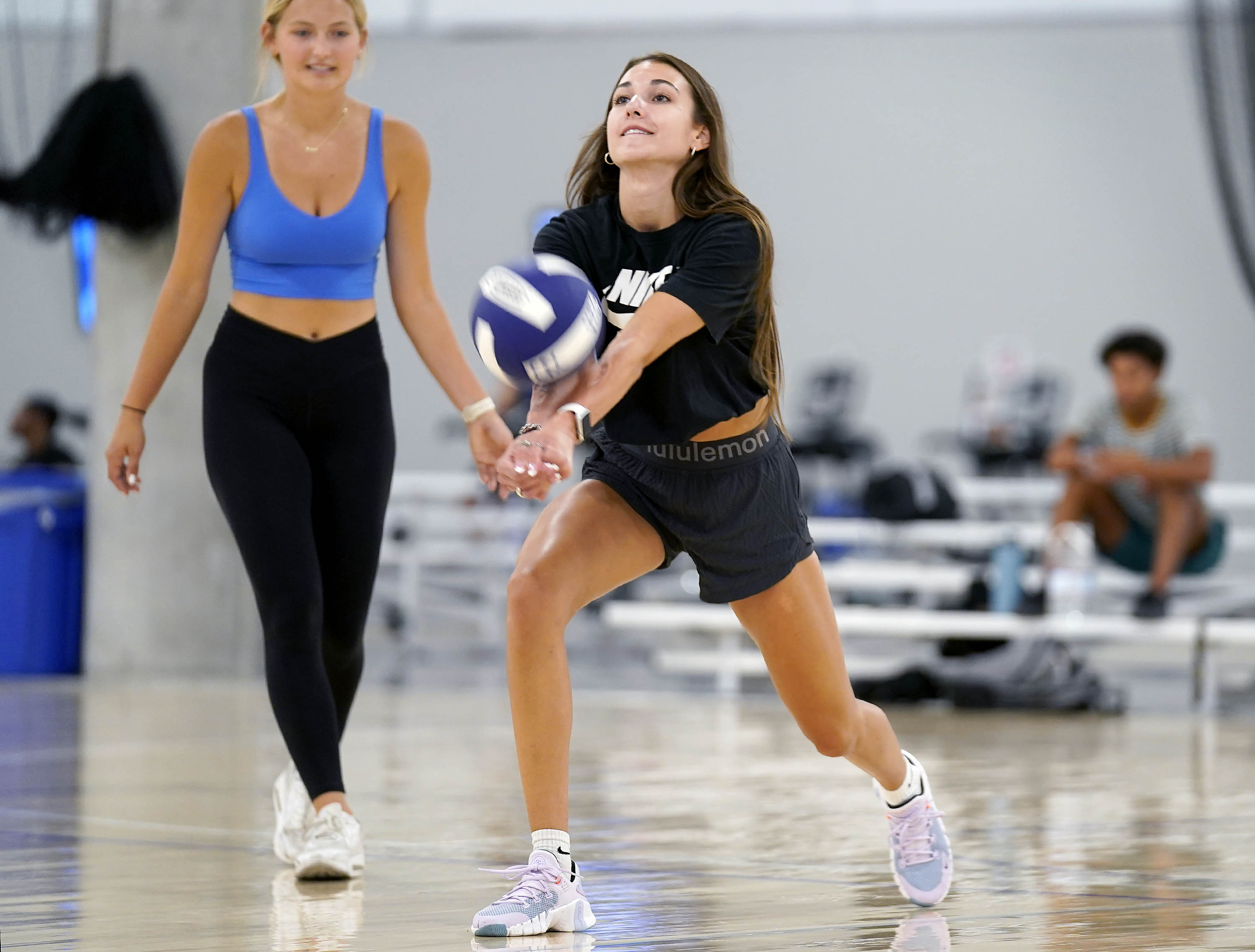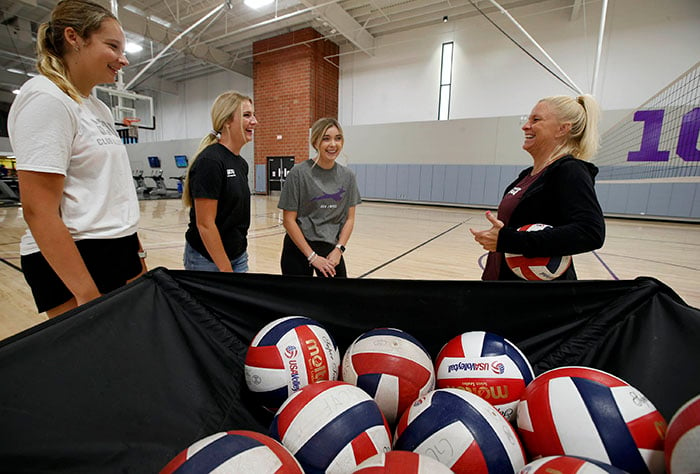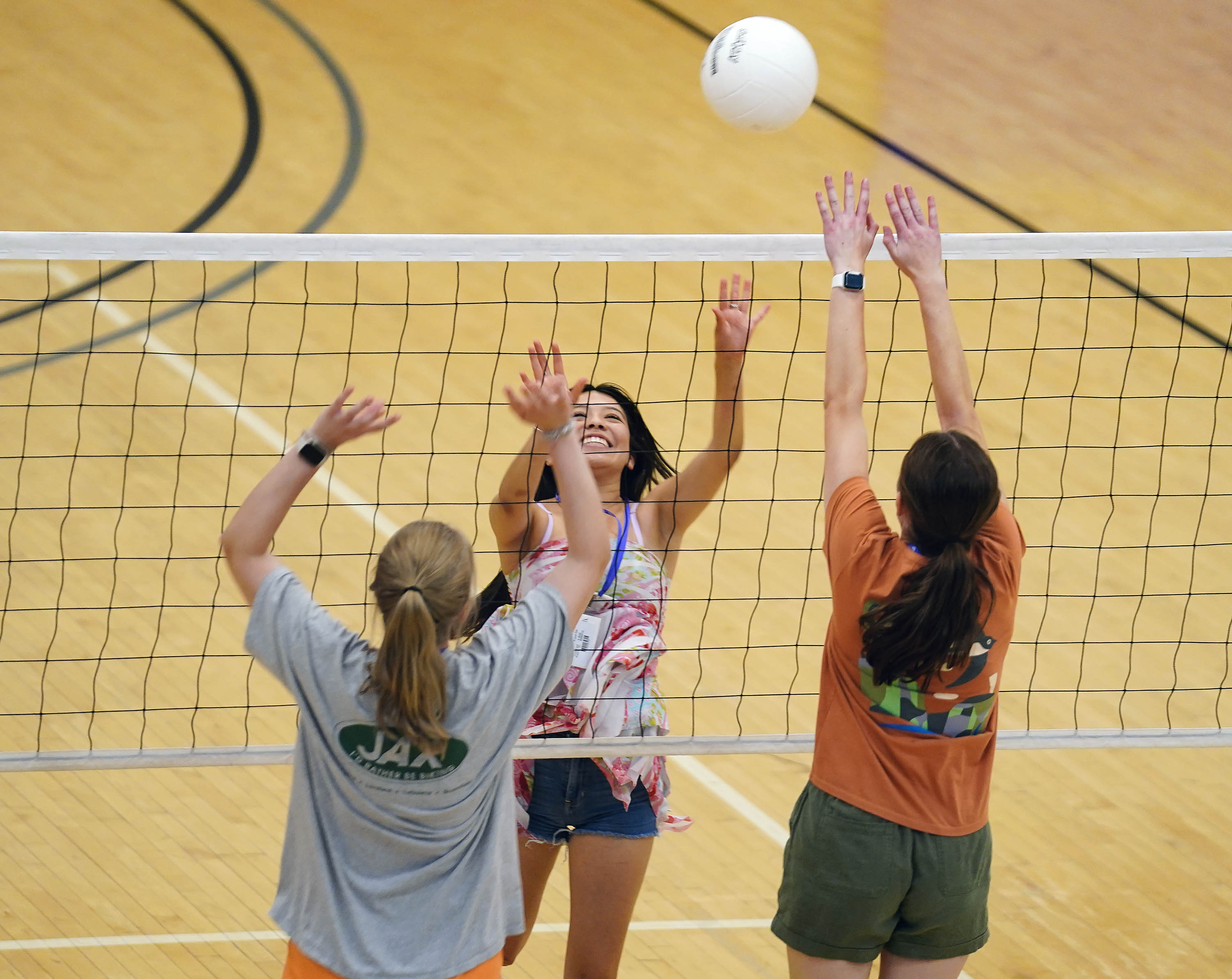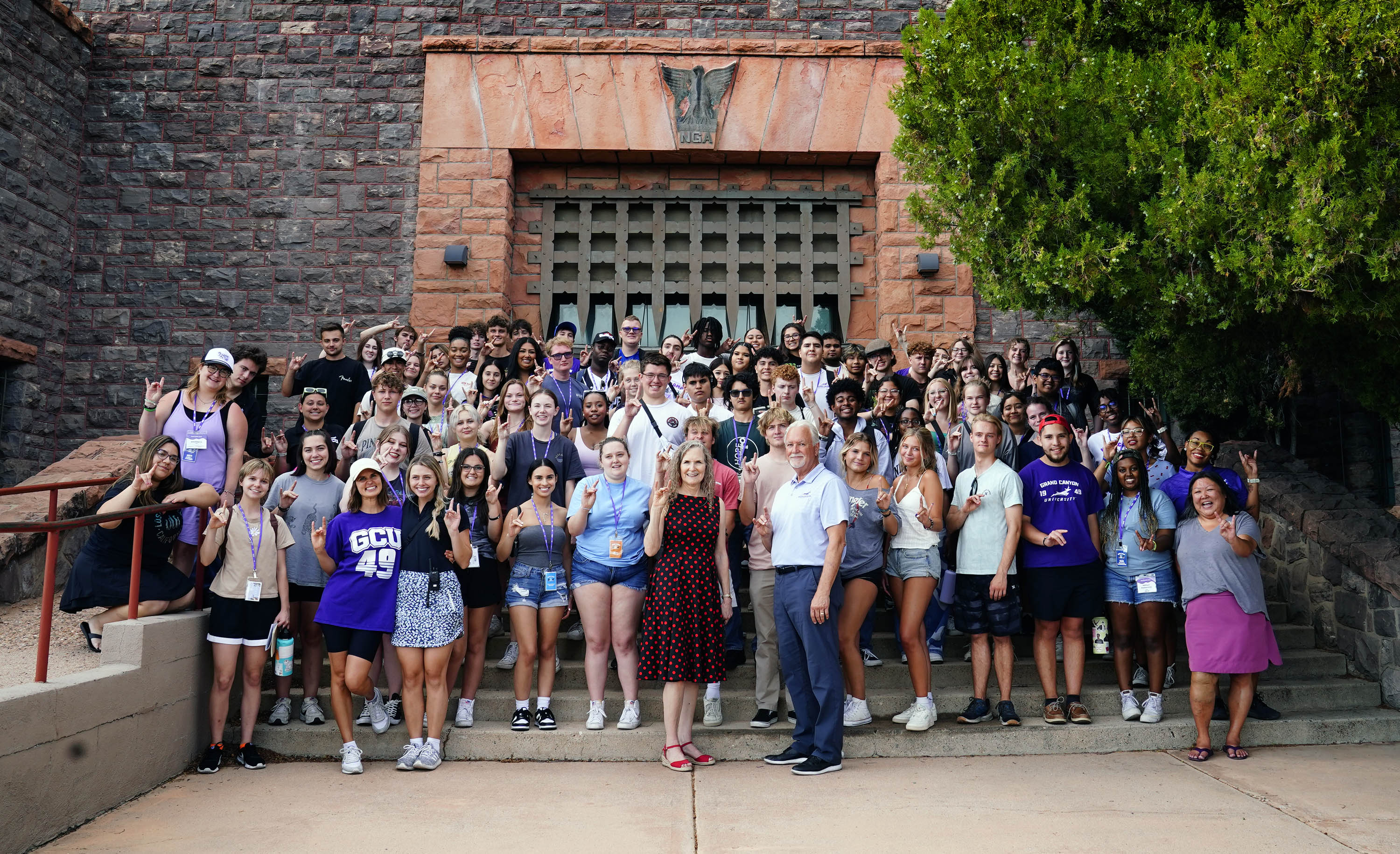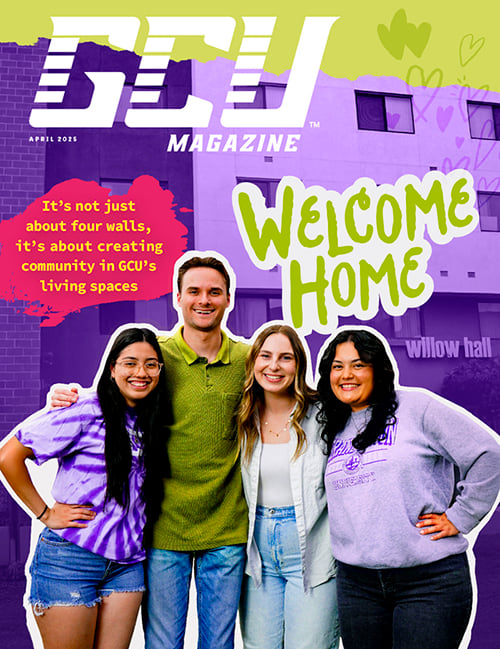
By Mike Kilen
GCU News Bureau
Loudjine Pierre-Louis faced a common dilemma, even for a communications major.
When asked to speak to a crowd, she was so nervous that she shook just thinking about it.
But after taking the stage as karaoke host in Thunderground at Grand Canyon University, Pierre-Louis remembered what she had learned at GCU's Public Speaking Lab.

She grabbed the microphone with confidence after a singer finished and turned to the crowd.
“Oh my God!” Pierre-Louis called out. “That is a cure for depression.”
The crowd cheered, the show went on.
She had been told how to navigate the potentially frightful experience at one of the many Lopes Live Labs on campus that help students in various aspects of their studies and development.
“I was extremely neurotic, and Josh Danaher told me to turn that into excitement,” Pierre-Louise said.
Danaher, an Assistant Professor in Communications, and other faculty members occupy the Public Speaking Lab in Room 203 of the College of Humanities and Social Sciences building for two hours, three days a week, to help students with public speaking.
The fear of public speaking is the most common phobia, and the National Institute of Mental Health reports that public speaking anxiety, or glossophobia, affects about 73% of the population.
Why?
“Because public speaking isn’t just about speaking,” Danaher said. “It’s about relationship. We are critical of ourselves and worried about social judgment. It’s social standing. ‘If I don’t do well at this, I’m not a good person, I’m not smart and I’m not going to get the job.'
“It’s stemming from an idea of wanting to be seen as competent.”
Danaher tries to soften the anxiety – it's just a few minutes of your life – before tackling the mechanics of giving a good class presentation or speech.
“What we offer is everything from selecting a topic, to practicing and polishing a speaking performance, and everything in between,” he said.
He helped Pierre-Louis analyze her task: What was the organization of the event and what was expected?
As a transition from one singer to the next, she needed to focus on reviewing the previous singer and previewing the next in a series of mini speeches. “My advice to her was to be systematic about those transitions and how you move the night along,” he said.
Pierre-Louis said honing her introduction and responses and using public speaking resources that Danaher supplied helped her do well.
“Halfway through I was more excited that nervous,” she said.
The lab is an outgrowth of an emphasis on public speaking in the past decade on campus, from the creation of a successful Speech and Debate team to an Honors College speaking class and a new Distinguished Speakers Club.
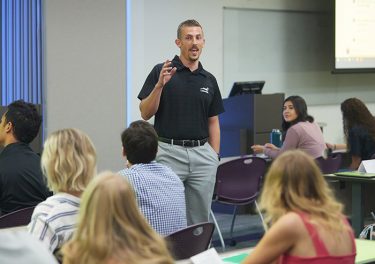
Danaher said they looked at models for co-curricular speaker development and did a “soft launch” for the lab in the fall. He hopes word spreads in spring semester and the lab becomes a vital resource for developing public speaking skills.
The skills are important for both in-person and virtual interactions that require attention to vocal and nonverbal speaking aspects, he said. “To me the most important part of public speaking is attention to detail and formal structure that being in front of a diverse audience necessitates.”
In public speaking, the subject is broken down for clarity and adjusted to the occasion and the audience. It’s a performance, but one that requires research and writing on the front end.
“I’ve often had students in public speaking tell me they become better paper writers,” Danaher said.
Danaher provided other insights on public speaking:
- “Some parts of speeches feel awkward and repetitive. You preview your main point with similar phrasing in topic sentences, a formulaic way of unpacking each point, and then you summarize those at the end. As a speaker, it feels repetitive. But to the audience the key is crafting something to be heard and not read. You want them to comprehend, but you want them to remember.”
- “It’s a balance between being systematic and being creative. That is the biggest part of public speaking. You might have students who are naturally talented at public speaking and let that talent carry them in a performance but are not very detailed about putting together a clear argument. So we really work on organization and research, the foundation and discipline of public speaking.”
- “What is the occasion, what are the ethics here and what are you trying to accomplish? For example, I hope students bring in toasts for weddings. I can work on their wedding toasts.”
- “The other thing is the idea of servant speaking. Speeches are a way to serve. We talk about speeches as being a kind of gift, so every choice you make should be audience-centered.”
Public speaking skills are needed in all facets of our personal life and education. Engineers or scientists must give presentations, too.
Or karaoke hosts.
“I even got some compliments," Pierre-Louis said. "If it wasn’t for the lab, I wouldn’t have performed that well. It was amazing.”
Grand Canyon University senior writer Mike Kilen can be reached at mike.kilen@gcu.edu or at 602-639-6764.
****
IF YOU GO
What: Public Speaking Lab
Where: Room 203, College of Humanities and Social Sciences (Building 16)
When: 10 a.m.-noon Tuesdays and Thursdays, 1-3 p.m. Fridays, resuming in January
****
Related content:
GCU Today: ACE Centers again offer in-person academic support
GCU Today: GCU is an open book in its home-schooler support
GCU Today: A lesson in teacher support: K12's YouTube channel

